
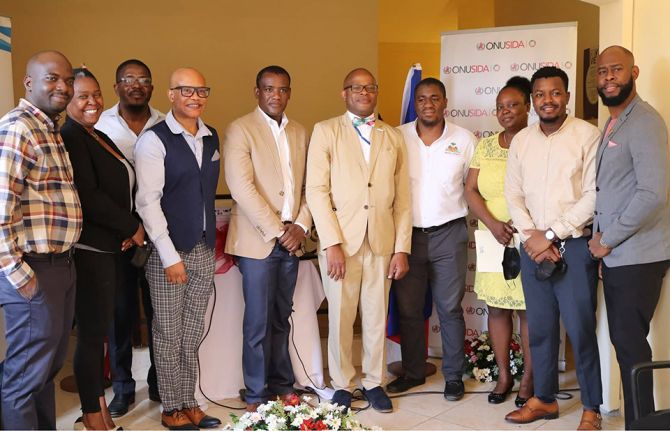
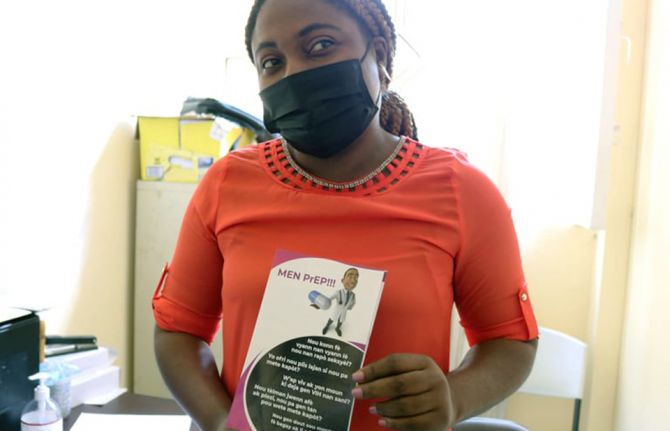
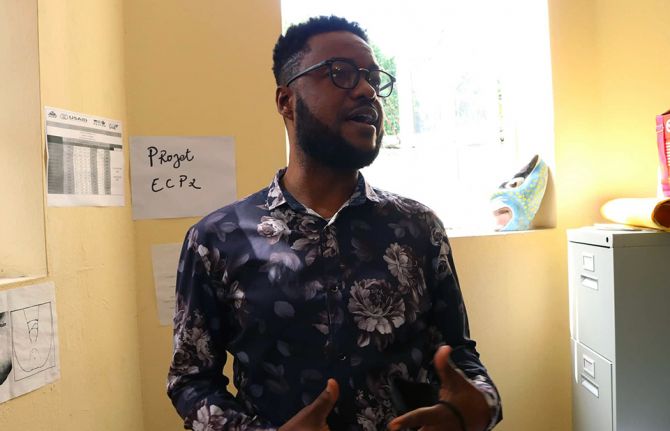
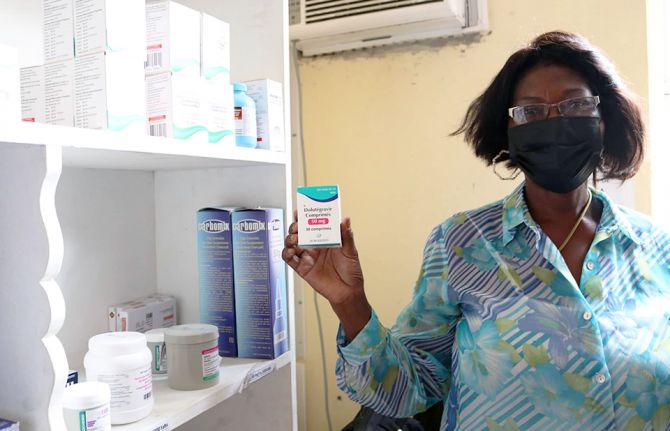
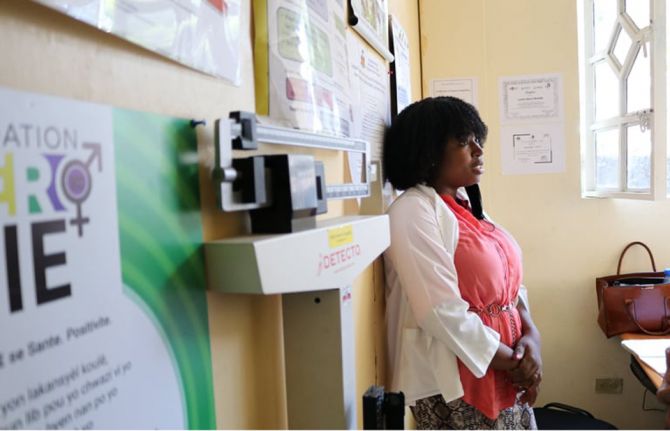
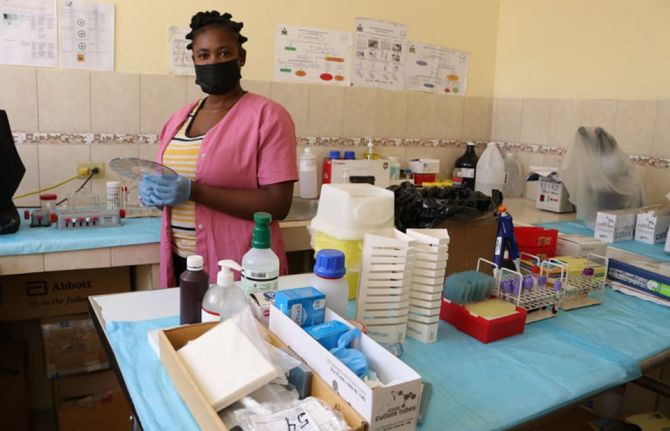
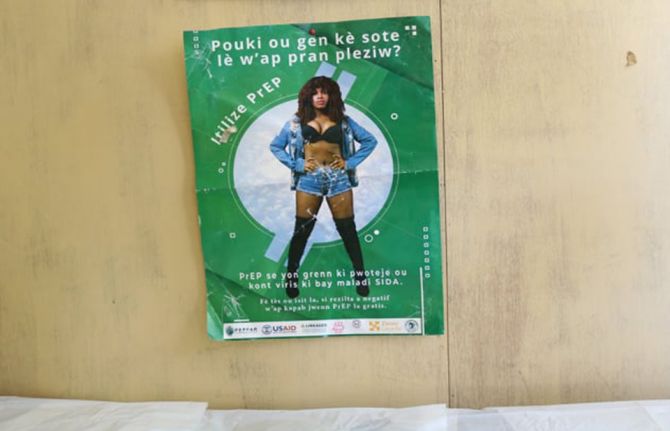
Feature Story
A model for serving key populations from Haiti
16 August 2022
16 August 2022 16 August 2022Imagine being widely blamed for tragedies that befall your country. Earthquakes. Hurricanes. Floods.
Now imagine being excluded from disaster response efforts because of this.
Lesbian, gay, bisexual and transgender (LGBT) people in Haiti face profound prejudice. Discrimination often undermines life chances. Education and employment opportunities erode. Even accessing healthcare can be difficult.
Founded in 1999, the SEROvie Foundation pairs health promotion for the LGBT community with human rights advocacy and socioeconomic empowerment. Today the organization operates projects in nine geographical departments.
UNAIDS supports SEROvie to ensure that the needs of key population communities are addressed during disaster responses. This intervention ensures people living with HIV continue to receive HIV treatment and have timely access to aid. Beyond the emergency phase, beneficiaries get support to resume generating incomes and reintegrate into their homes. They also receive psychosocial support to cope with grief and trauma.
In 2016 SEROvie founded the J.C Ménard Clinic in Port au Prince. This clinic serves LGBT people and other key populations including female sex workers and their clients. Here SEROvie has distilled more than two decades' experience in providing health and social support into a complete service package.
With the assistance of several collaborators including the U.S. Agency for International Development (USAID), J.C Ménard offers a range of free-to-user services addressing gender-based violence, stigma and discrimination, family planning and HIV prevention, including PrEP. It also provides HIV, STI and TB treatment and care.
At the in-house laboratory, technicians manage both diagnostics and treatment monitoring. They track individual journeys from positive test to viral suppression. Over the last year the clinic provided facility-based HIV testing for 6,000 people and supported HIV treatment management for over 1,500 clients. Apart from dispensing patients' medicines, the clinic coordinates with other treatment facilities to ensure there are no stockouts and drugs do not expire.
Social workers conduct individual assessments to determine clients' needs. Psychologist, Darline Armand says the most important moment in her work is the first interaction after someone has been diagnosed.
"They need to feel safe," she says.
Peer Supervisor, Gregory Jacques, explained that the clinic employs both peer education and peer navigation as strategic approaches. Educators engage clients about relationships, risk and safety, providing accurate information. Navigators are themselves people living with HIV who walk others through the treatment and care process.
"The thing that makes a difference is that they know you are just like them," one navigator explains.
In the community room clients learn about health and relationships through fun activities. This is also where they meet for support groups and dialogues.
The Monitoring and Evaluation team measures programme performance with painstaking detail. They track everything from the number of people living with HIV identified through index testing to the number of sensitization sessions conducted with Voodoo priests. Over the past year more than 15,000 people received awareness-raising messages on HIV, GBV, stigma and discrimination from the clinic. Over 1,500 people benefit from comprehensive HIV care and treatment services while more than 1,500 are on PrEP.
Steeve Laguerre, SEROvie's co-founder, reflects on the organization’s journey with both awe and clarity.
"The services we provide are entirely determined by the needs of the people we serve," he says. "We seek funding that aligns with their demands. The work is always client-driven."
This client-centred approach is valuable for the wider Caribbean. According to the 2022 Global AIDS Update, In Danger, last year four of five new infections in the region were linked to key population communities and their sexual partners. At the same time, most of the funding for regional combination prevention activities with key populations comes from international sources.
“Community-led strategies for patient care help reduce late diagnosis and loss to follow-up while improving treatment outcomes,” said Dr. Christian Mouala, UNAIDS Country Director for Haiti. “These approaches must be adequately resourced and integrated into the national response.”



